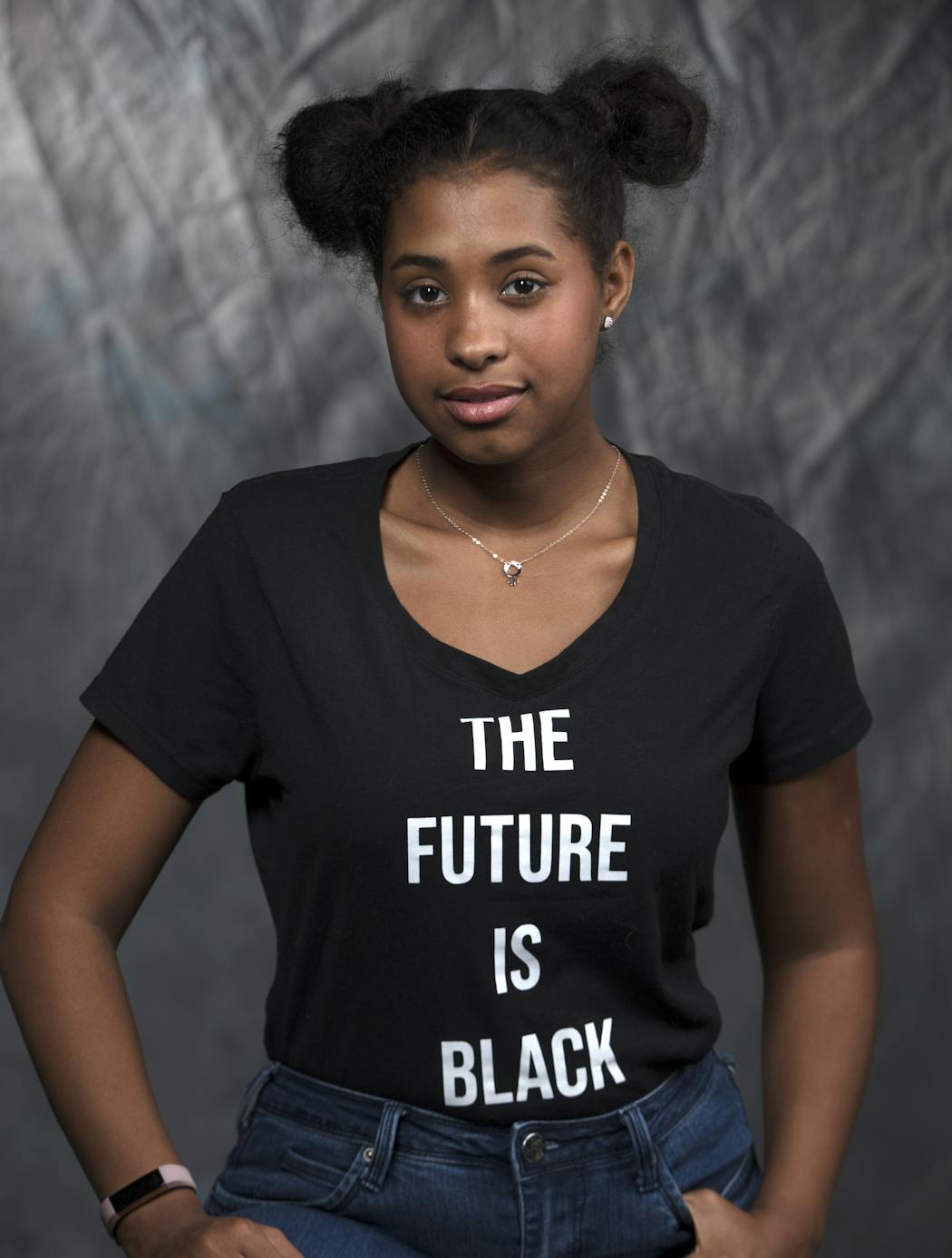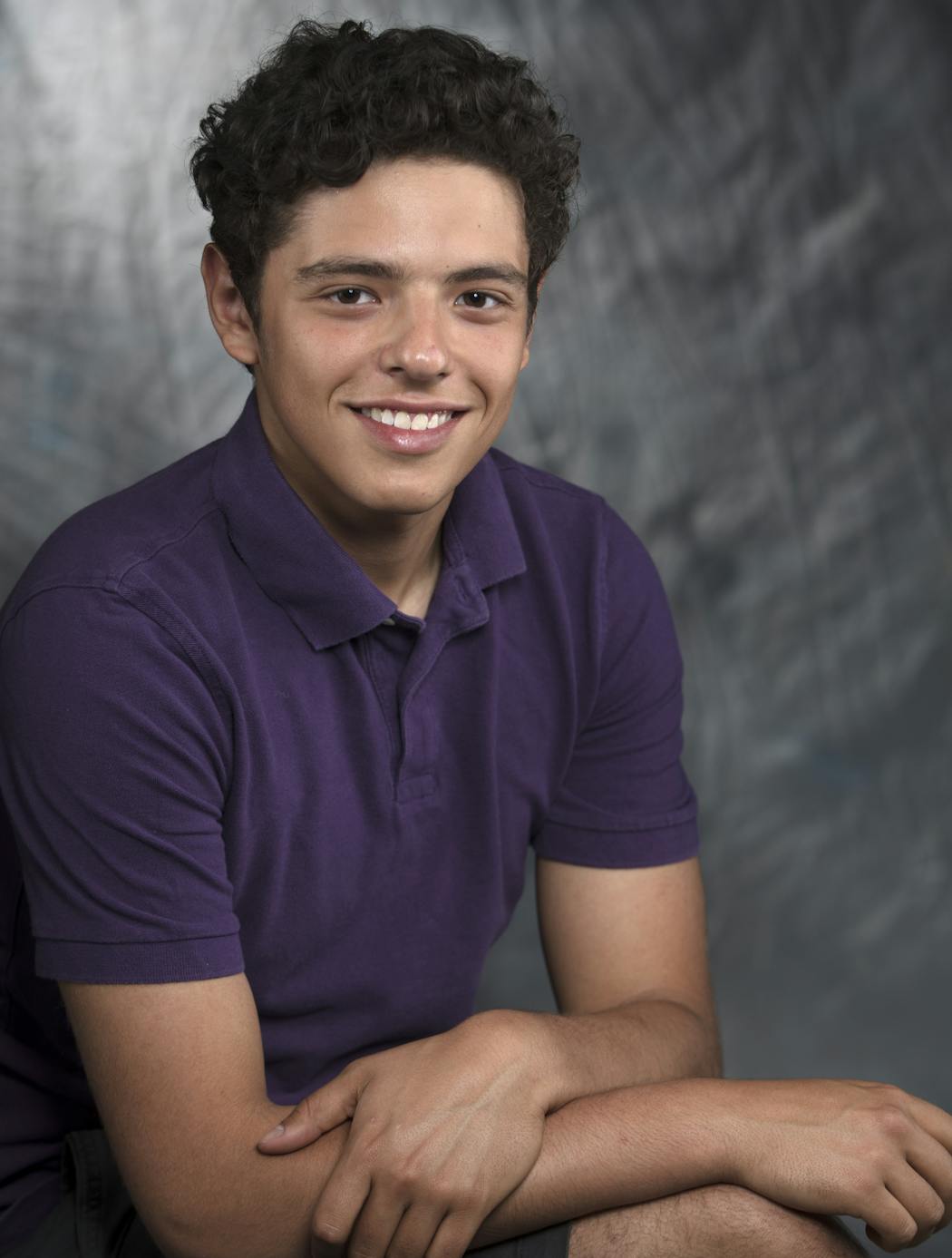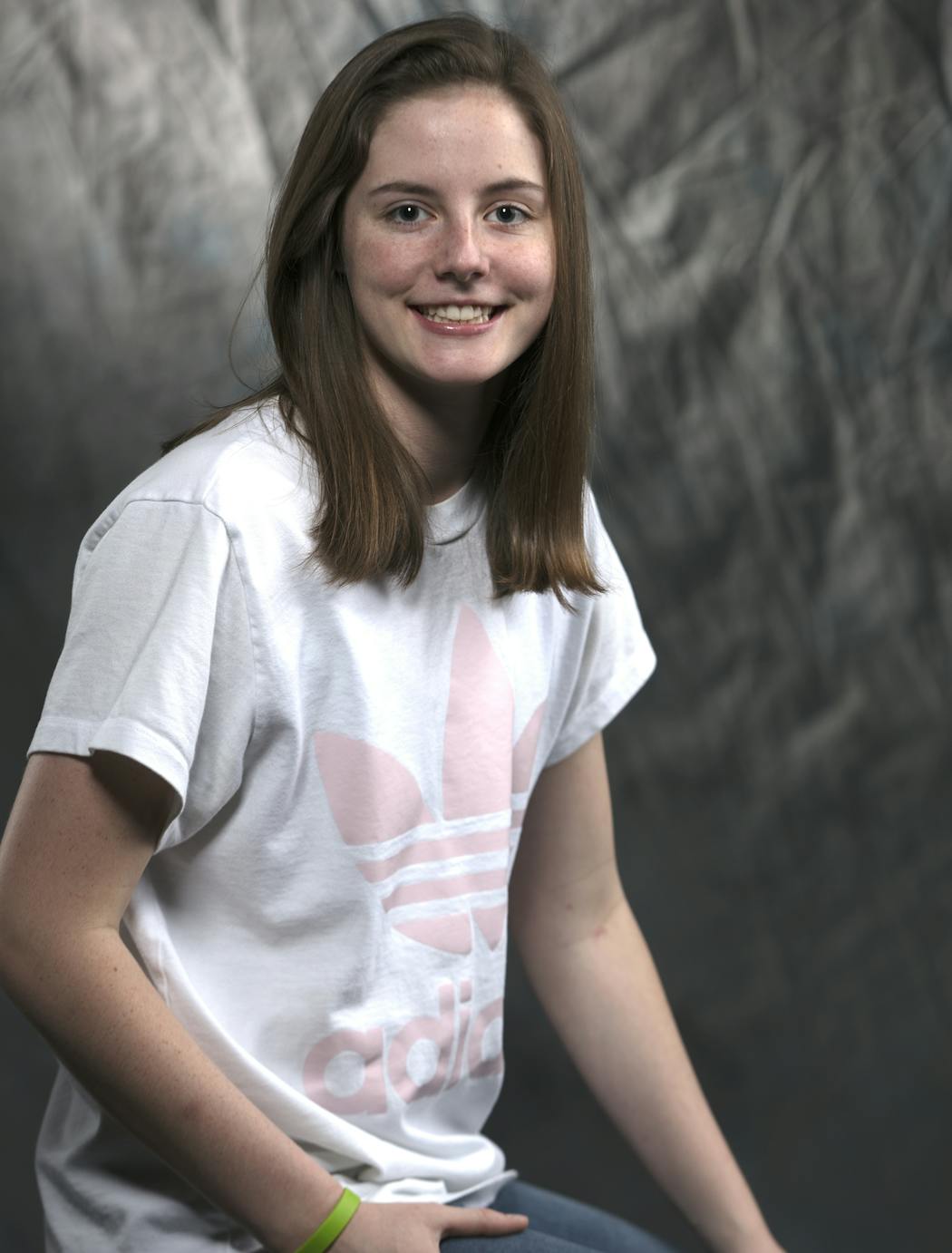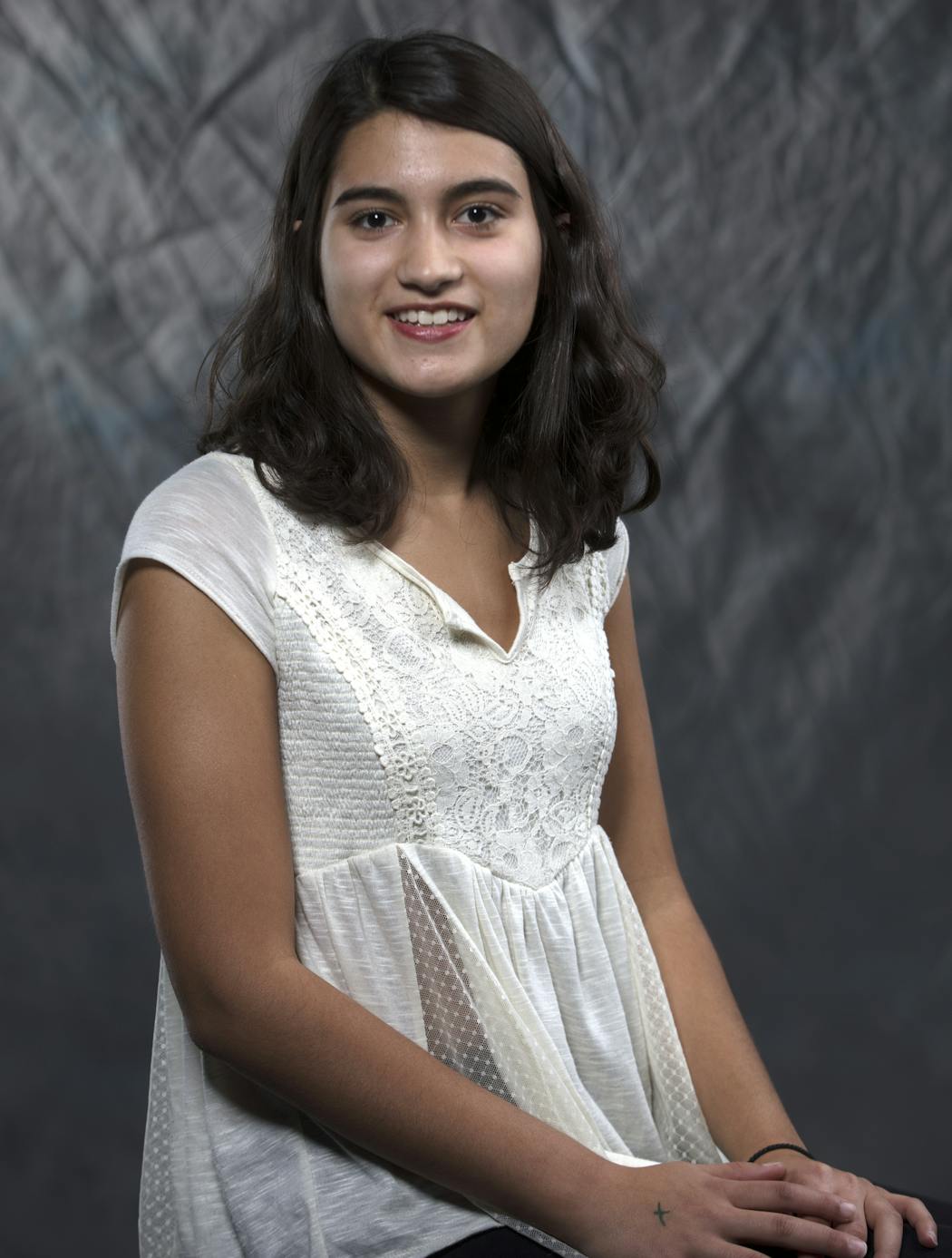Many unkind things have been said about the current generation of high school students. They've been accused of being more active on social media than in real life. They've been described as lazy, entitled and self-obsessed. They've been blamed for everything from the decline of chain restaurants to the slumping sales of breakfast cereals.
And yet, when given the chance to voice their opinions, they amaze us with their intelligence, sophistication and maturity. Far from shallow, they reflect a depth of understanding and concern that belies their age. They have high expectations for themselves and the world around them.
Many people dream of becoming world-changers. But some of today's teens already are tackling the challenges of improving their communities. They believe that they can make a difference — not some day in the future, but right now.
Meredith ('Mimi') Kol-Balfour
A 16-year-old sophomore at Southwest High School in Minneapolis, Mimi is a student representative on the Climate and Safety Advisory Committee through the school district. She also is committed to pursuing racial equity and has created a video project of interviews with female African-American leaders.
Why are these issues important?
Because I want my children, and my children's children, and every generation after that, to live better than we are. And there's always been the saying to leave something cleaner than when you first found it, and that's what many children are trying to do right now. People are fearing for their lives, or people are fearing to leave their homes, or people are fearing to leave their classrooms during class time, or people are fearing to stand up to someone, or people are fearing to raise their hand in class because people might bully them. And that's scary. It separates us, it divides us. We're never going to be a community if these things continue to happen.
What are the makings of a good leader?
There are two different types of leaders. One is a team leader, and one is an adult. A team leader is someone who stands up, and they maybe go against the grain, and they have the courage to be different and tell their own truth. While a great adult leader is someone who's approachable. Someone who you can go to, and they will listen, not just [to] the loudest people, but from people who might be underrepresented.
Why is the leadership of young people important now?
Sometimes I feel like adults already have their views. But children and young adults still are very open in what they're thinking.
Adrian Ali-Caccamo
A 17-year-old junior at Central High School in St. Paul, Adrian is involved in Minnesota YMCA Youth in Government. At a model assembly, he and a friend worked to pass a gun legislation bill. Later, in the wake of the Stoneman Douglas shootings in Florida, the two students brought the bill to Minnesota politicians. Since then, he has continued work for this bill, done a lot of public speaking and is working with Minnesota Students Demand Action.
What inspires your passions?
Columbine happened in 1999, and I was born in 2001. So after the Stoneman Douglas shootings, it occurred to me that my entire life, this sort of thing, as sad as it is, has been normal. It was ridiculous to me that that is what continued to happen, and that to some degree, we have accepted that.
What makes your generation stand out?
I don't know that our generation is necessarily different in this mind-set than some past generations. If we look back to the 1970s and the Vietnam War era and those sort of protests, there's a lot of very similar youth action and youth motivation. I think what we definitely have is a sort of youthful energy and optimism. We believe that just because it hasn't been done doesn't mean it can't be done. And so we can still change this.
Are there any leaders that you look up to?
President Obama. I definitely admire his manner of speaking, but also the way that he draws on individuals, and the power of individuals who work together to a common goal. And the power of hope.
Lukas Wrede
An 18-year-old senior at St. Louis Park High School, Lukas is a commissioner on the city's Environment and Sustainability Commission. He helps lead the school's environmental club and works with an organization called iMatter, which helped to initiate a youth-led climate action plan. He also is working on a project called the Nest to create a coffee shop and inclusive safe space for high school students.
Why do you think it's important for students to be active in their communities?
I feel like young people are at a place where they've realized that we're a transitional generation, we're the generation that's going to move away from that construct that we're all on social media, addicted to our phones, whatever, and change the world. Something I really admire right now is the Parkland students, how they've risen up to the occasion and elevated others — thousands, millions of others.
How would you define leadership?
Leadership is all about being able to grow into your own skin. The leaders are the ones that voice their opinions. They are not afraid to really show who they are and show what they feel, deep down.
What have you learned about leadership?
I've learned that everyone's a leader. And I've been given the opportunity to fill that role, to fill that position, but really there are so many people that could have. And for me, to give the opportunity to others to fill that position, to find a voice, and give them the opportunity to be a leader, as well, I think that's kind of what I've learned. I'm graduating and I won't be around next year, and so it's really important to find people that are going to continue all these movements that started a couple of years ago.
Mimi Schrader
A junior at Wayzata High School who has played varsity basketball since eighth grade, Mimi, 17, recently committed to play basketball at the U.S. Naval Academy. She started a student group called Club US (Unified Students) to create bridges between special education students and the rest of the student body, including organizing fan sections at adapted sports games, spending time in special education classrooms and planning weekend outings.
What got you committed to these efforts?
I have an older brother. He was very involved in our high school — officer of the choir, captain of the tennis team. And all throughout high school I've always kind of wanted to leave a legacy. I feel like this was a great platform and way to do that. Greater than any of athletic accomplishments, I feel like this club impacts more people in the community.
How would you define leadership?
Leading by example. A big thing that I believe in is that your actions speak louder than your words, so when I lead, I try to lead by example and do things not because people are going to praise me or get acknowledgment for it, I just do it because that's who I am. So just to do things that you would normally do when no one's watching, and then hopefully people take notice and follow in your footsteps.
How will this help you in the future?
I have these foundations of leadership skills that I've learned through the club and being a leader in my school, so hopefully, I'll just be able to grow in those leadership things later in my life.
Eva Hadjiyanis
A 17-year-old junior at Edina High School, Eva is a copy editor for the school newspaper. She won an essay contest on women's rights and seeks out opportunities to speak about current issues. She also works with students through Jugheads Youth Juggling Company.
What makes you want to have a voice on issues?
We're not seeing any change right now. Everybody sees all these problems, but I think most people kind of just are like, 'Well, that's the way it is.' So I and many other teenagers are starting to say, 'This is the way that it is right now, but we can change that.'
What would you say to other members of your generation about leadership?
Not everybody has to be a leader, but everybody has a voice that matters. They shouldn't feel like it's useless to speak out for what they believe in.
Are there any defining experiences that influenced your leadership?
I was at church camp, and I saw these two little girls who were crying. They were in third grade and I was in ninth or 10th grade. I was like, 'What happened?' And they told me that a girl who was in sixth grade had stomped on their sand castle. So I went up to the counselors, and after discussing it, they ended up sending that sixth-grader home. That's when I realized that just me taking a moment to turn around and ask them whether they were OK made a huge difference.
Lauren Otto is a University of Minnesota student on assignment for the Star Tribune.





